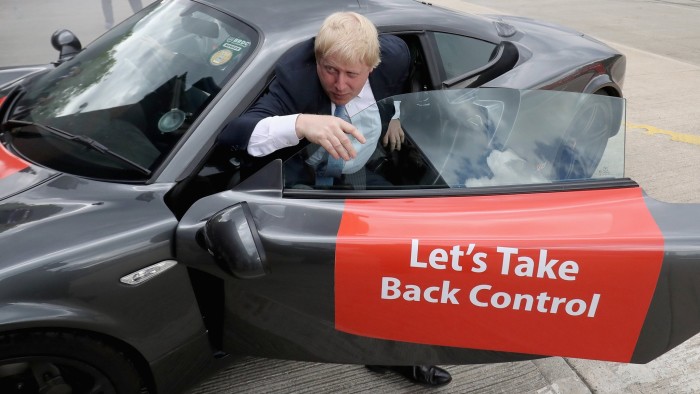Brexit camp ‘marginal favourites’ to win

Campaigners for the UK to leave the EU are now “marginally favourites” to win the referendum on June 23, according to the country’s leading polling expert.
In the past week, opinion polls across the board have shifted in favour of the leave side, meaning either the country is set for Brexit or pollsters are facing their second forecasting disaster in just over a year.
A series of phone polls published this week have shown rising support for leaving the EU, a trend that was already showing in online polls.
John Curtice, a polling expert at the University of Strathclyde, said there is now a “serious possibility” Britain will vote to leave the EU next week.
Research by Ipsos Mori published on Thursday found Leave on 53 per cent and Remain on 47 per cent, changed from 43 per cent for Leave and 57 per cent for Remain last month.
Another pollster, Survation, also published new figures on Thursday that put Leave at 45 per cent, up seven points, with Remain on 42 — down two points — since late May.
An ICM phone poll published earlier this week had Leave on 53 per cent and Remain on 47 per cent — little changed from its last phone poll in late May, which was one of the first to show the changing trend.
“The two kinds of polls seem to be converging around a picture where Leave probably have about 52-53 per cent of the vote, which takes us to a crucial point,” Mr Curtice said.
He dated the beginnings of what he said could be a decisive shift in public opinion to May 27, the start of the official campaign period.
“That is the day when the official election period kicked in and the UK government no longer had access to the resources of the British civil service,” he told the BBC.
“Prior to that, the Remain side were controlling the media agenda and focusing the referendum on the economy and the alleged dire consequences that would flow from us leaving.”
The pollsters’ findings suggest the Leave camp’s push to shift the focus of the discussion from the economy to immigration has had an effect.
Immigration had become the most important factor in the vote Ipsos Mori found, with a third of respondents citing it as very important — up five percentage points in the past month.
Nearly half of voters believed the Leave campaign’s claim that Britain sent £350m a week to Brussels, Ipsos Mori found, while 45 per cent believed that Turkey was going to be fast-tracked into the EU and its population would have the right to travel to the UK if Britain remained in the EU.
Meanwhile, the proportion of voters saying the economy was very important in their decision dropped five points to 28 per cent, Ipsos Mori found.
The Remain camp is at risk of being seen as “a one-trick pony campaign” and “it may be that [economic] record has begun to wear a bit too thin for too many voters”, Mr Curtice said.
However, serious questions remain about the reliability of pollsters’ findings given their failure to predict the Conservatives’ narrow victory in last year’s general election.
All the pollsters have since changed the way they carry out their work. Several are still making changes as the referendum approaches.
Ipsos Mori tweaked its methodology further before this latest result. Even taking this into account, it “still shows a significant swing towards leave”, Mr Curtice said.
————————-
UK’s EU Referendum: How people would vote

For a more detailed summary of opinion polling visit the FT’s Brexit poll tracker page
————————-
Mr Curtice said that referendums can “often overstate the appetite for change”. “We might think that some voters would go back towards Remain as they become concerned about the risk during the last week,” he said.
One in five voters surveyed by Ipsos Mori said they could still change their minds before voting, meaning there was still “all to play for”, its chief executive Ben Page said.
A Remain campaign aide warned that “people got their hands badly burnt last year by following the polls” and said: “There is only one poll that counts and that is the one on referendum day.”
Comments